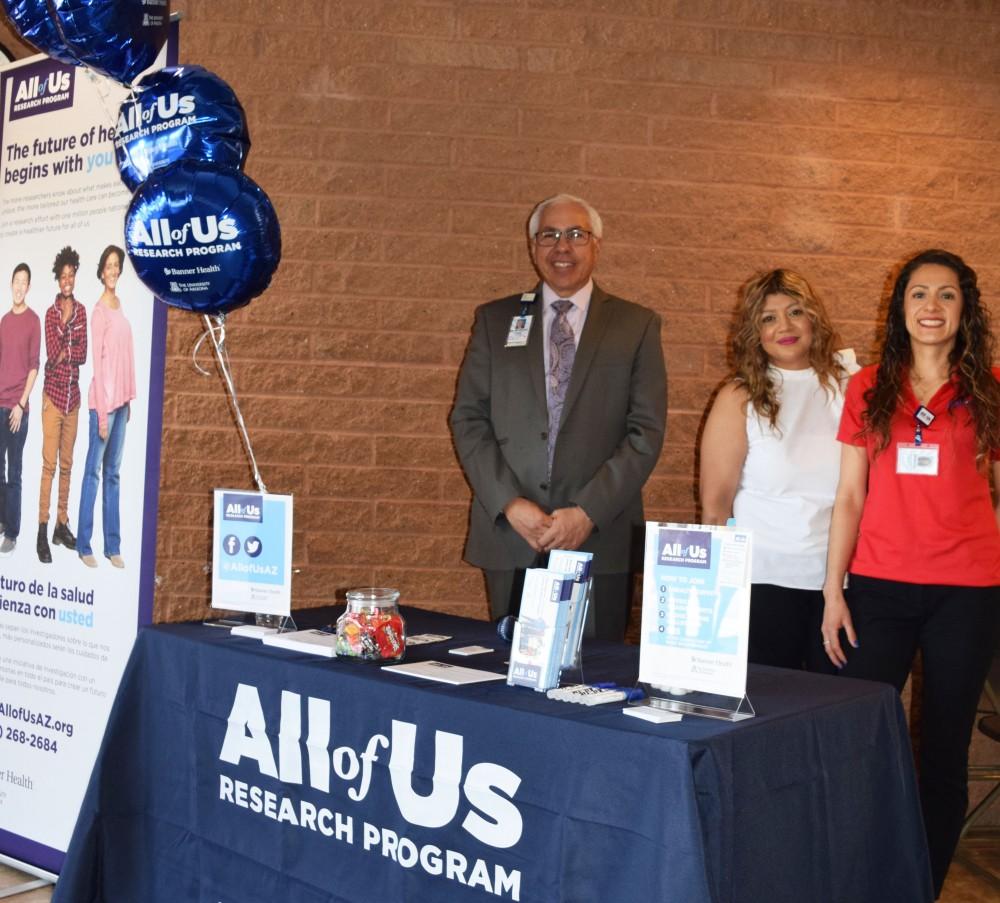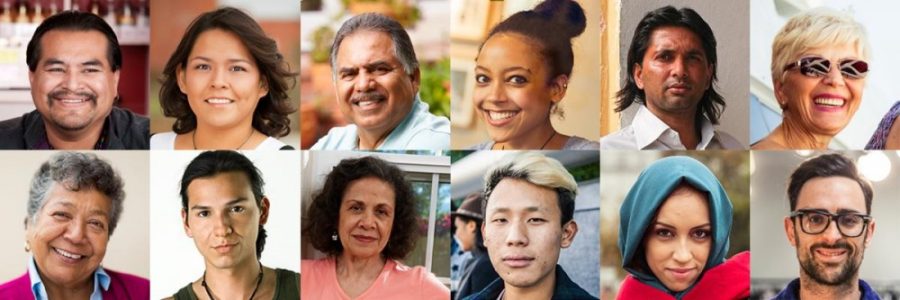Imagine a healthcare system tailored specifically to you — one where doctors take not only your medical records, but your family history and even genetics into consideration.
That kind of medicine — precision medicine — is exactly what the University of Arizona and Banner Health “All Of Us” research program is working to achieve, and it just received a boost in funding.
The National Institutes of Health had originally promised the project an award of $43.3 million over five years, but that number was increased to $60 million, according to an email President Dr. Robert Robbins sent to the UA community on May 3.
That’s the largest NIH award in Arizona history, according to Robbins, who also wrote that he is “incredibly grateful towards all the people from UAHS and Banner who worked to make this program a reality.”
The program aims to enroll one million people who will share not only physical samples, but detailed health histories as well as environmental information. The goal, according to the project’s website, is to build a detailed data set to increase research breakthroughs and improve precision medicine.
Dr. Kenneth Ramos, associate vice president of precision health sciences, defined precision medicine as not a single achievement, but an accumulation of them.
“What we now call precision medicine really is a culmination of essentially 30 years’ worth of medical and research advancements that now have coalesced to provide an opportunity for healthcare providers to take advantage of all these advances and put them to work in making diagnoses, in better optimization of treatment and in higher quality of life for people,” Ramos said.
RELATED: College of Pharmacy Skaggs Pharmaceutical Sciences Center renovations approved
A more local goal, according to Ramos, is to build a clearer picture of the complex, diverse population of Arizona and to improve the quality and efficiency of healthcare for all.
“All Of Us is the research arm of the precision medicine initiative that we have here at the University of Arizona … to build a large database that allows us to understand the uniqueness and the qualities of Arizona in comparison to other populations,” Ramos said.
Dr. Francisco Moreno, associate vice president for diversity and inclusion at the University of Arizona Health Sciences, said a large part of the program is focused on that uniqueness and diversity.
“We want to be very inclusive of all people in Arizona,” Moreno said. “Precision medicine is more affordable than some things in the past. It’s going to be the way we practice for everybody. It’s a way to make medicine more available and accessible for everyone.”

A challenge that precision medicine has to overcome, Moreno said, is people that may not see doctors regularly often view doctors negatively. Ramos agreed, saying disadvantaged communities can, understandably, be more guarded about sharing information.
“It certainly is a major challenge for disadvantaged communities because of the complexity of the problems they deal with. They sometimes tend to be less trusting of systems of government, and they tend to be more guarded in terms of volunteering for projects like this … it’s actually become a national problem because the under-representation of various populations in medical research translates into less understanding of those issues themselves,” Ramos said.
That’s why All Of Us is focusing on those underrepresented populations, according to Ramos.
“By making very concerted approaches to different communities in a culturally sensitive manner, we hope to be able to shift the pendulum and increase representation of those individuals in the research and in the medical system in general,” Ramos said.
RELATED: Former Stanford professor Dr. Michael Dake named next VP of Health Sciences
Moreno said All Of Us personnel includes many bilingual individuals, and the program is also having conversations with tribal communities to include them in a culturally sensitive way.
This program also seeks to address another large gap in current healthcare, which Ramos said is basing expensive treatments off averages.
“When we make a diagnosis and we recommend a treatment, those parameters are defined by average response, which means that if you have any one individual that doesn’t follow the average, that treatment may or may not work the way you intended for it to work,” Ramos said. “There’s a high failure rate, and high failure rate, as you would imagine, translates into increased costs, because instead of one visit, you have to make three visits before you get to the right medicine.”
All Of Us and precision medicine will ideally increase efficiency and decrease costs, according to Ramos. To do so, Moreno said the program needs a long-term focus and dedicated participants.
“We invite them to participate in research in the future,” Moreno said. “We have to keep people engaged and provide them with a valuable return. We give them information. We want them to be part of the study for 10 years.”
Overall, Ramos said he and other scholars in the UA community are lucky to be a part of a national initiative to address health disparities and make precision medicine accessible.
“We now stand in a very strong position to make all these great advances accessible to everybody, including our disadvantaged populations in Arizona,” Ramos said.
For more information on the All of Us research program, or to enroll, visit https://www.joinallofus.org/.
Follow Marissa Heffernan on Twitter














